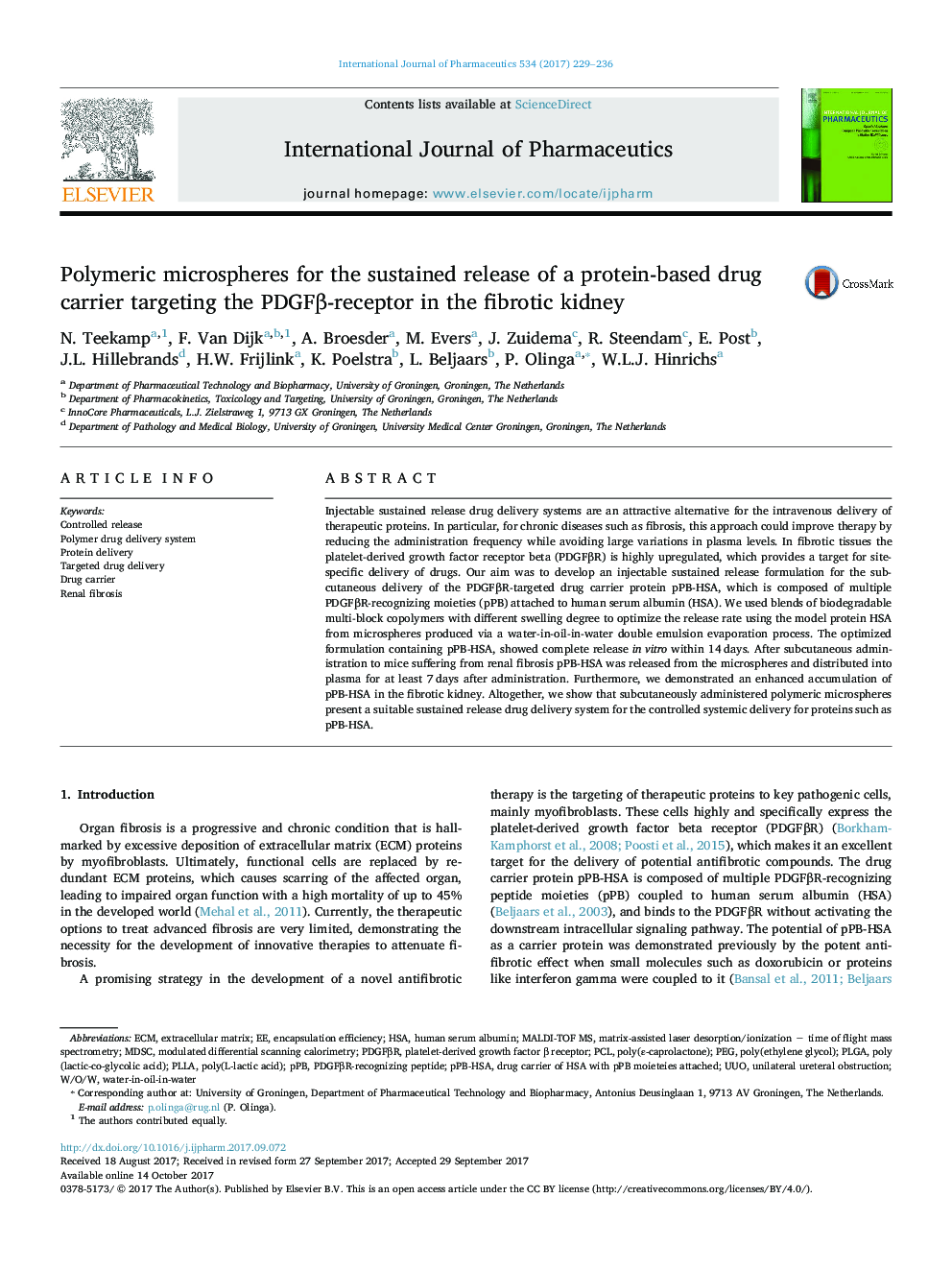| Article ID | Journal | Published Year | Pages | File Type |
|---|---|---|---|---|
| 5549891 | International Journal of Pharmaceutics | 2017 | 8 Pages |
Injectable sustained release drug delivery systems are an attractive alternative for the intravenous delivery of therapeutic proteins. In particular, for chronic diseases such as fibrosis, this approach could improve therapy by reducing the administration frequency while avoiding large variations in plasma levels. In fibrotic tissues the platelet-derived growth factor receptor beta (PDGFβR) is highly upregulated, which provides a target for site-specific delivery of drugs. Our aim was to develop an injectable sustained release formulation for the subcutaneous delivery of the PDGFβR-targeted drug carrier protein pPB-HSA, which is composed of multiple PDGFβR-recognizing moieties (pPB) attached to human serum albumin (HSA). We used blends of biodegradable multi-block copolymers with different swelling degree to optimize the release rate using the model protein HSA from microspheres produced via a water-in-oil-in-water double emulsion evaporation process. The optimized formulation containing pPB-HSA, showed complete release in vitro within 14 days. After subcutaneous administration to mice suffering from renal fibrosis pPB-HSA was released from the microspheres and distributed into plasma for at least 7 days after administration. Furthermore, we demonstrated an enhanced accumulation of pPB-HSA in the fibrotic kidney. Altogether, we show that subcutaneously administered polymeric microspheres present a suitable sustained release drug delivery system for the controlled systemic delivery for proteins such as pPB-HSA.
Graphical abstractDownload high-res image (263KB)Download full-size image
